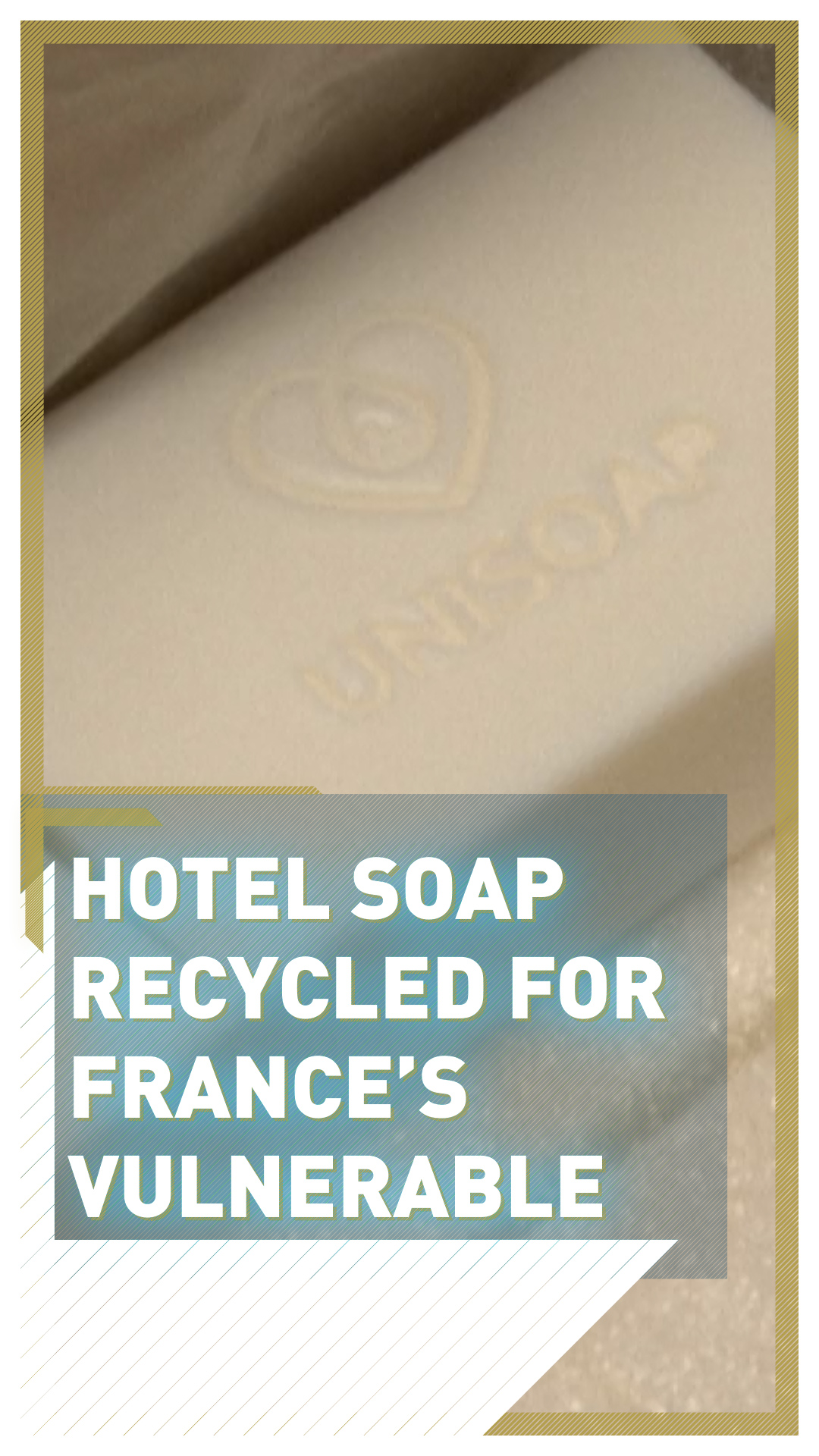02:08

"Giving a second life to soap that went in the trash," is the goal of Unisoap in Lyon, France.
At the Radisson Blu hotel in the heart of the city, around 300 kilograms of soap, which are often "barely used" by customers, are collected each year by Unisoap.
According to the company's founder Pauline Grumel, "there are 3 million people in France who do not have the adequate means to buy basic hygiene products and it is estimated that there are 51 million bars of soap discarded by hotels in France."
This shocking statistic, inspired Grumel to form Unisoap in 2017 and since then 150 hotels in France have been involved in the collection of around 6 tons of soap, according to the association.
Due to the current health crisis, there is more importance than ever before placed on hygiene and sanitation. Despite this, there are also increasing levels of unemployment. The closure of hotels in many countries and stricter coronavirus measure also means that there are more hygiene products than ever before that can be donated to Unisoap.
"With COVID, we have even more waste than usual since all the small hospitality products that are put in the room, I no longer have the right to reuse them for the next customer and I have to throw everything away," says Claire Dupleix at the Radisson Blu.
The scheme is both environmentally and socially driven and goes beyond helping people stay clean, Grumel explains.
"We have an approach that is both environmental, because the objective is to reduce hotel waste. We also have a humanitarian approach, since our final mission is to give access to hygiene to people in need. But we also have a social mission, since we have been working with the OVE Foundation since the beginning of our activity and we have decided to include young people with disabilities in the recycling process of our soaps."
In the Establishment and Work Assistance Service (ESAT) workshop, young people work at repurposing and cleaning the soaps. The soaps, which meet cosmetic regulations are then stamped with the image of the association – a heart that encloses a drop of water with the words Unisoap.
It is all coordinated with the help of the OVE foundation that supports children, adolescents, adults and the elderly, in order to promote their inclusion in society.

Unisoap hopes to clean up 20,000 bars of soap this year. /Jeff Pachoud/AFP
Unisoap hopes to clean up 20,000 bars of soap this year. /Jeff Pachoud/AFP
Grumel says with the current health crisis, people have not only realized that "soap is the best weapon against viruses" but also the value of hygiene, which "affects people's health, wellbeing and self-esteem."
The needs for such basic necessities from the association have also increased dramatically since the start of the pandemic.
"We were extremely in demand last year at the time of confinement. There was already a need for hygiene products because all the associations that we meet tell us that they have few hygiene products when it really comes just after food needs," says Grumel.
Unisoap, which started production in mid-January, plans to make 20,000 bars of soap this year.
At the Restos du Coeur center in Givors, just south of Lyon, each recycled bar of soap slipped into a package is noted in the register as they are such a rare commodity.
Anne-Marie, head of non food partnerships for the association, told AFP: "Since the health crisis, we have realized that hygiene products have become essential products, in particular soaps, which are basic products."
One volunteer at the center shared that the "little extra," which is added to the aid packages brings "a smile behind the mask," among the beneficiaries who receive such a basic necessity that is often taken for granted by many but is a luxury for others.
Video editor: Sam Cordell
Source(s): AFP

